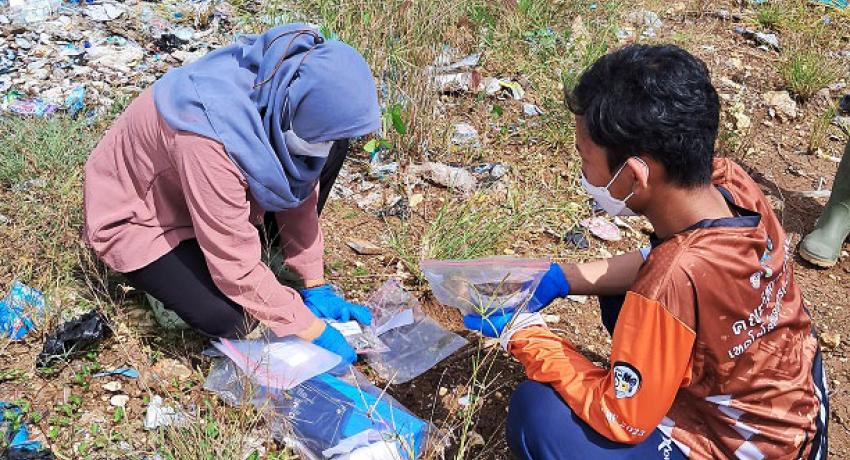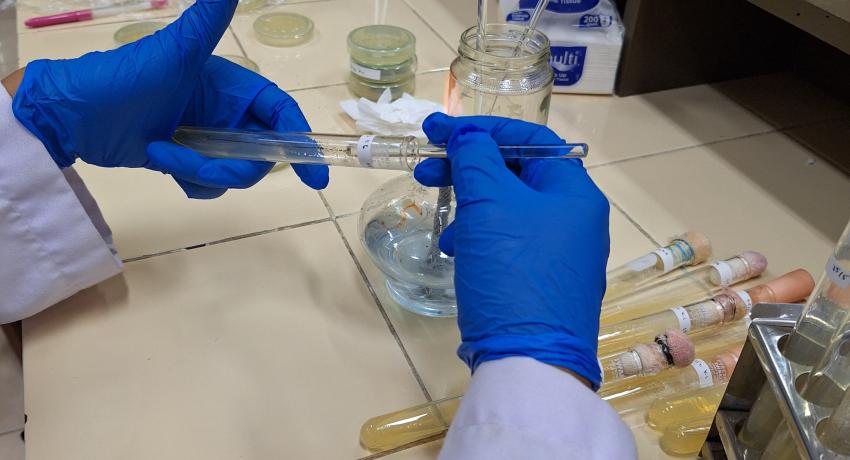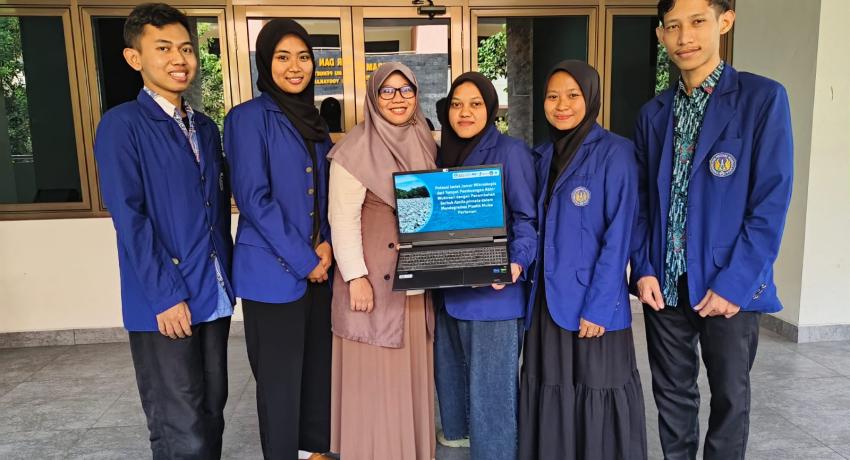Facing growing concerns over plastic pollution, especially the persistent waste of agricultural mulch plastic, a student team from Universitas Negeri Yogyakarta (UNY) launched an innovative research project under the Student Creativity Program (PKM). Their project seeks a natural solution to degrading plastic waste that is often left in landfills or burned after use.
Led by Akhmad Taufik from the Biology study program, the team includes Septi Handayani, Septiana Putri Harlina, Alyaa Khairunisa (Biology), and Sidiq Bayu Setyawan (Chemistry Education), with guidance from Dr. Evy Yulianti. Their project, titled “Potential of Microscopic Fungal Isolates from Wukirsari Landfill with Azolla pinnata Powder Addition in Degrading Agricultural Mulch Plastic Waste”, investigates eco-friendly alternatives to conventional waste management.
The idea stemmed from the team’s concern over the widespread practice of burning or dumping plastic mulch waste, which negatively impacts soil and water quality. They proposed a biodegradation approach using fungal isolates from the Wukirsari landfill combined with powdered Azolla pinnata, a nitrogen-rich aquatic plant that stimulates enzyme production. “The fungi we studied produce alkane hydroxylase enzymes capable of breaking down LLDPE-based mulch plastics,” explained Akhmad.
The team isolated fungi from landfill soil and plastic debris using selective Basal Salt Medium (BSM) with n-hexadecane, followed by purification and testing in liquid Mineral Salt Medium (MSM). The medium was enriched with Azolla powder and mulch plastic fragments, incubated for 30 days under agitation. Results showed that isolate S199 with 2% Azolla powder achieved the highest degradation rate.
Challenges included the difficulty in sourcing Azolla pinnata and obtaining clear electrophoresis results. Despite these setbacks, the team overcame obstacles through collaboration and persistence, ensuring the research stayed on track.
This project offers a promising natural method for managing plastic mulch waste through biotechnology. With further development, it could lead to practical applications, such as dry fungal-based biodegraders, contributing to long-term environmental conservation and sustainable agriculture.







